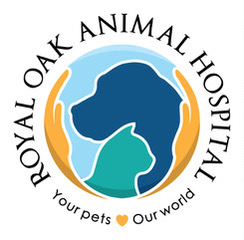Library
-
Parvovirus may affect dogs of all ages but is most common in unvaccinated dogs less than one year of age. Young puppies under five months of age are usually the most severely affected and difficult to treat. Clinical signs can vary but generally include severe vomiting and diarrhea; the diarrhea often has a powerful smell, may contain lots of mucus, and may or may not contain blood. Most dogs with CPV infection recover if aggressive treatment is used and if therapy is started before severe septicemia and dehydration occur.
-
Good hygiene takes practice, but starting early will make keeping your pup clean easier for his entire life. You can start some of these jobs shortly after your puppy arrives home. Be sure to keep a calm voice and use food rewards as positive conditioning to make it a positive experience.
-
The American Animal Hospital Association and American Veterinary Medical Association have established guidelines to standardize preventive health care for dogs, helping them to live longer, healthier lives. This handout provides an overview of the recommendations within these guidelines and why they are so important.
-
Many dogs love to get out to socialize and exercise with their canine friends and dog parks are their go-to spots for getting together. Proper etiquette, from both you and your pup, will allow everyone to enjoy the park safely and courteously. However, dog parks are not a good fit for all dogs.
-
A successful life with a family dog starts with great training for your puppy. Planning to set puppies up for success, learning how to use management, positive reinforcement, luring, capturing, and shaping will help owners train their puppies successfully. Positive puppy training and socialization classes are also beneficial for healthy puppies over eight weeks of age.
-
Life with puppies is complicated, and all puppies will sometimes do things their owners find problematic. Using management, planning, supervision, and positive reinforcement for the right behaviors will help puppies succeed, and owners better enjoy their companions.
-
Every puppy will become a dog who needs veterinary care, grooming, and handling. Starting in puppyhood, owners can use positive training techniques to teach their puppies how to accept and enjoy restraint, basic procedures, and home husbandry.
-
Providing puppies with positive socialization experiences may prevent the development of future fears. Puppy socialization must be done gently to avoid accidentally causing fear. Puppies are most primed for socialization before the age of 14 weeks. By taking precautions, some careful socialization can and should be done even before puppies have completed their entire vaccination series.
-
Though every puppy is an individual, large, and giant breed puppies in particular require an individualized approach to nutrition, since they have some different needs compared to small and medium breed dogs. When it comes to puppy food, one size does not necessarily fit all.
-
Congratulations on the addition of a new puppy to your family! This handout provides general care advice for your puppy, including nutrition, play and chewing behavior, housetraining, socialization, nail trimming, and basic first aid.


